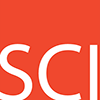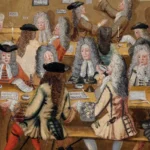The research community begins 2017 with questions. Questions directed at our ability to continue supporting research projects, collaborations, and communities due to potential changes and threats to available funding and opportunities. The role of advocacy in scholarship and the role of scholarship in the public is at least being described in the extremes right now, even if we don’t yet know how these roles will exactly play out.
Not unfamiliar with being on the federal funding chopping block, some humanities scholars are sharing their thoughts on moving forward in the new funding environment. For example, Jason Rhody, director of the Social Science Research Council (SSRC) Digital Culture program, discusses fighting for funding of humanities research (though several of his points are relevant more broadly).
A few highlights:
- Getting involved in direct advocacy and lobbying. This is often one of those questions that divides researchers; whether to participate in activism for their field or work. There has never been a written “general rule” about this. It has been an ongoing conversation about the norms and counter-norms in the science community. But if there ever was a field that needed to wield activism to deflect threats and engage hearts and minds, it is climate research right now. It isn’t the only one, but it is probably the one thrust forward to the most prominent position in the public eye and policy makers’ sights.
- Connect with your peers and communities. Networking and collaboration has become more prominent and more necessary in research, but consider this an opportunity to cast an even wider net. Scholarly societies are often a provider of resources for their stakeholders, but they can also provide a unified front to voice concerns.
- Seek out media training. Media literacy is a field that calls for and seeks to provide the tools to not only critically consume media (a skill which is now thoroughly in the spotlight), but also the ability to be able to create or participate in media exchanges. If you feel that your issue or field would be best represented by your voice, make sure that you are prepared. Some universities have resources for exactly this, and there are a few other avenues for learning.
To read more of Jason’s points and other articles, follow the link: How to Fight for Federal Support of Cultural Research and Why It Matters – Medium










